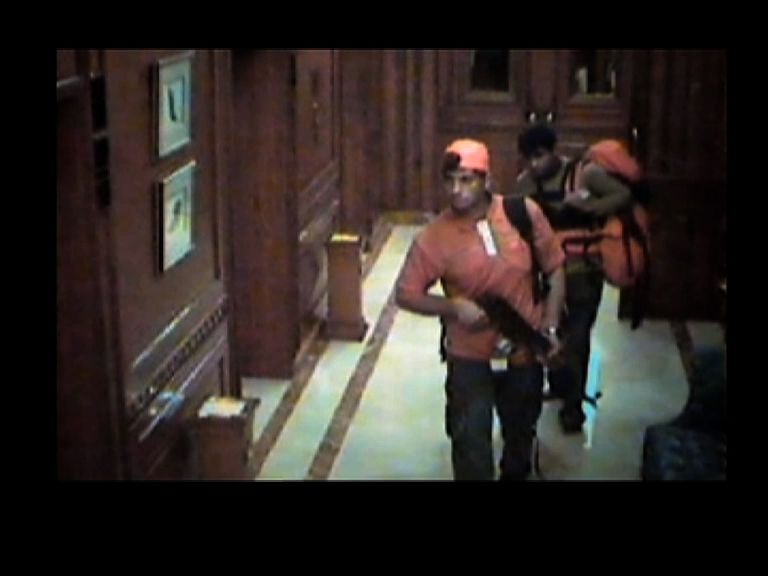Reconstitution, a series of four performances organised at Soho House, London, in conjunction with the exhibition Long Ago, and Not True Anyway at Waterside Contemporary, ends with an invitation for a sing-along of Britain National anthem – except the words have been scrambled. The two major motives of the patriotic song, God Save the Queen, are broken down into a mistaken syntax, and it is not clear who is saving whom. The Icelandic duo Libia Castro and Ólafur Ólafsson are responsible for this remix, which is part of their ongoing project Your Country Doesn’t Exist (2003–). This project/political campaign offers a rethink of the problematic state of national entities in an ever globalising, postmulticulturalist world.
All of the performances in Reconstitution deal with similar issues, which are defined by the press release as ‘re-assembling of historical narratives affected by migrations, invasions, economic interactions, time and memory’. But other then the anthem piece, all the rest of the morning’s turns are in the format “performative lectures” than performances per se. Among these is an eloquent representation of the collective Slavs and Tatars, an artist collective that focuses its practice on the space ‘east of the former Berlin Wall, and west of the Great Wall of China’. An unnamed representative from the collective explains how their practice was initiated from a reading group and functioning publishing company. With reference to political language, mistranslation, transliteration and the metamorphosis of historical alphabets, he drew surprising parallels between the countries of the former Soviet Union and political Islam, and between Marx and Prophet Muhammad.
In a sequence that was pretty hard to take on a Tuesday morning, Butler combined extracts from newsreels covering the 2008 Mumbai terror attacks and a Bollywood horror movie
From words into images, Brad Butler introduced some of the sources and influences for his and his partner Karen Mirza moving image-based practice: the use of technological devices by terrorists, and their cinematic ‘inspirations’. In a sequence that was pretty hard to take on a Tuesday morning, Butler combined extracts from newsreels covering the 2008 Mumbai terror attacks and a Bollywood horror movie depicting a similar attack. When we hear in an original sound clip the voice of one of the commanders of the Mumbai attack ordering the terrorist to announces to the world “you have only seen the trailer, wait till you see the main feature” – the real and the fictive are combined into a contemporary nightmare.
Joana Hadjithomas and Khalil Joreige introduced the power of the image to reveal forgotten histories. Their project The Lebanese Rocket Society (2011–) embarked from the discovery of a 1960s Lebanese stamp promoting the country’s space programme. I guess there is something about Lebanon that makes artists want to restage history, because in a similar way to Walid Raad’s imaginary archive The Atlas Group, Hadjithomas and Joreige decided to reinvestigate this long forgotten historical attempt of Lebanon to take part in the global race to space. The project took the shape of a full-length documentary movie and a life-size replica of one of the original rockets, installation documentation of which was shown. The duo also presented extracts from Sounds of Earth and of Lebanon (2011), the artists’ version for the ‘golden’ records sent with American space exploration missions, carrying the ‘sounds of the universe’ as a greeting for potential extraterrestrials. But instead of highlighting the forgotten national pride that Lebanon took in its project, the artists’ record, to which they added some greetings in the Arab language, sounds like just another version of the American ‘It’s a Small World’ utopian politically correct soundtrack.
It is not by chance that these issues of nationals borders, migration, geopolitical history, collective-national memory and personal narratives are being cast into the unclear format of ‘lectures performances’, in which an anthem can easily follow a didactic lecture. The artists participating in Long Ago, and Not True Anyway base their practice on an elaborative research, which is not only the basis for their works, but is also their essential component.
